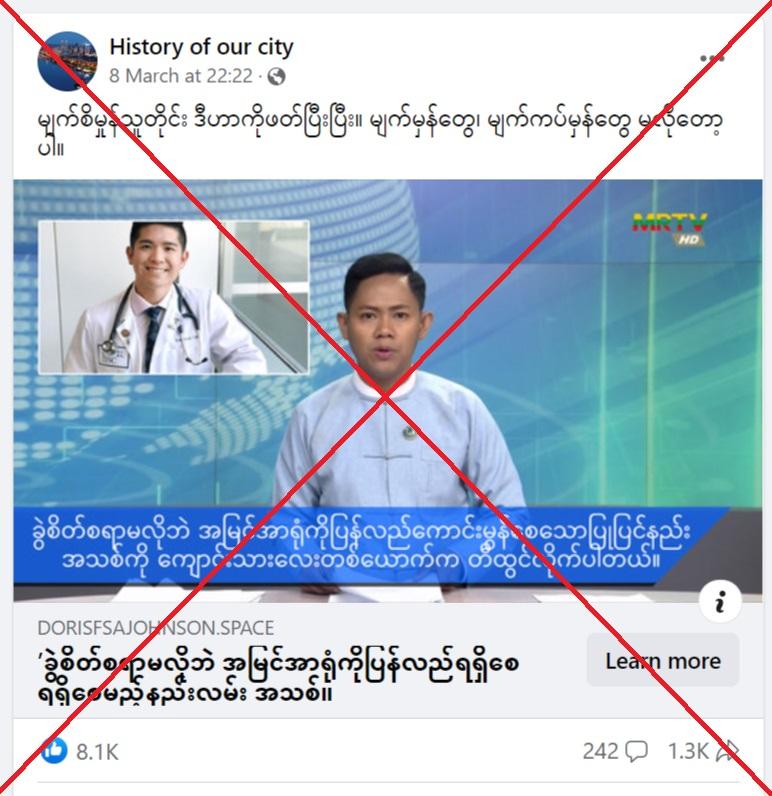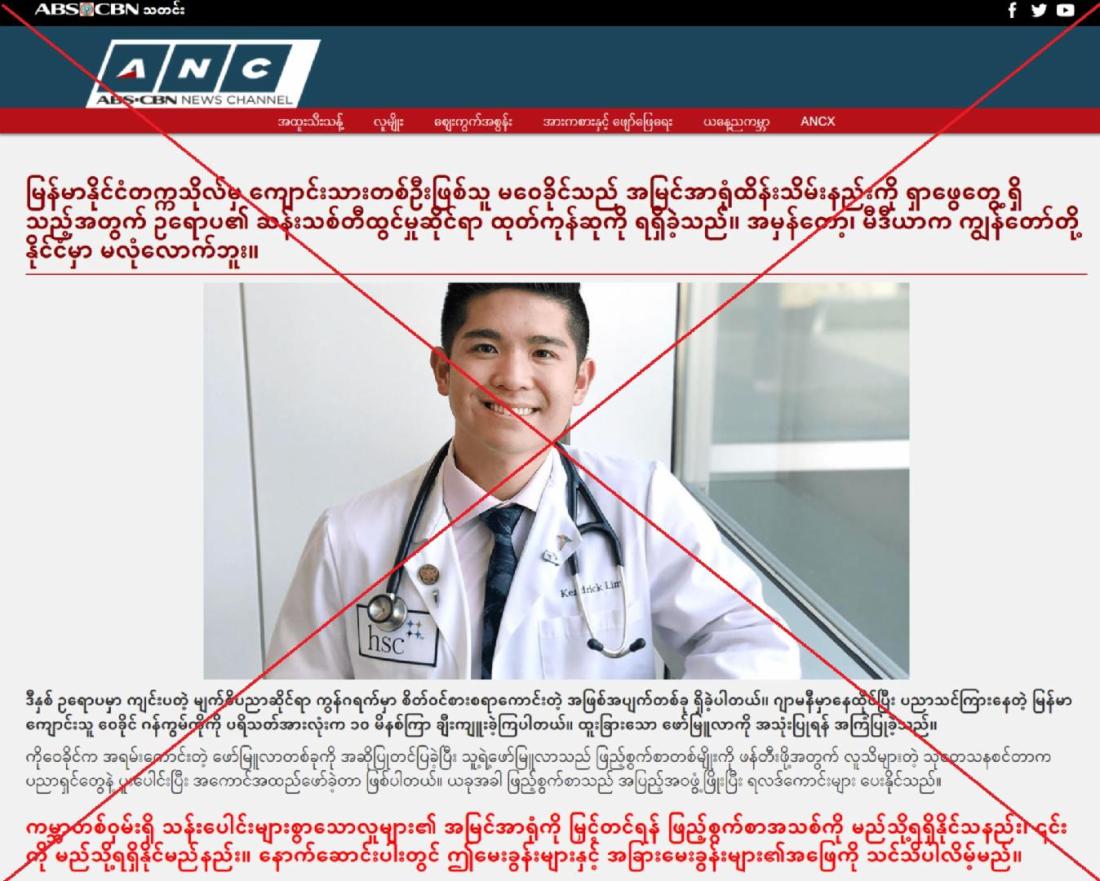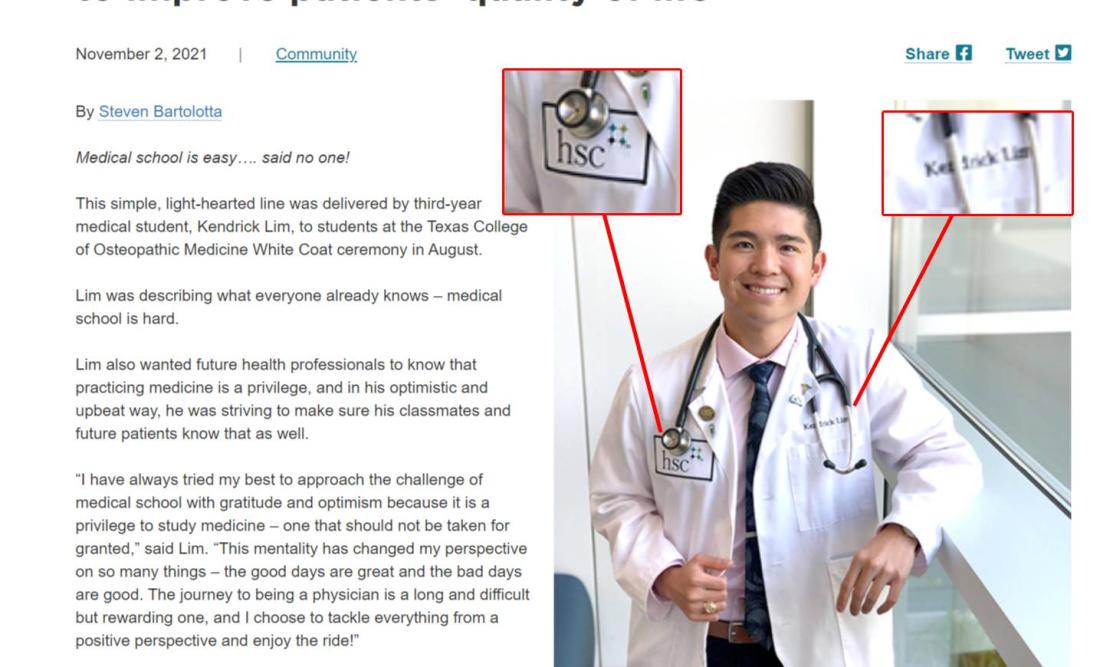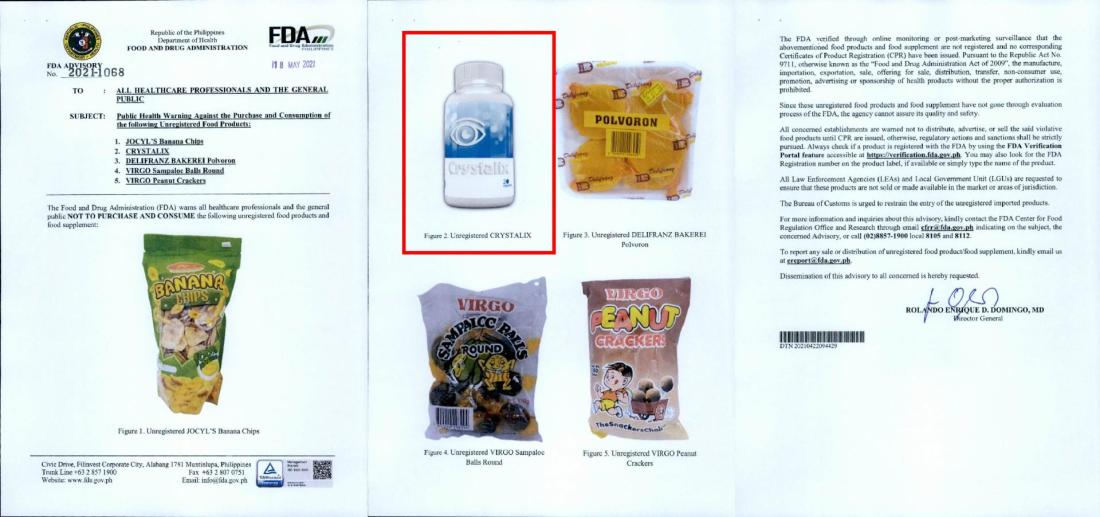
Fake report claims 'Myanmar student won European award for eyesight supplement'
- This article is more than two years old.
- Published on March 28, 2023 at 11:41
- 3 min read
- By AFP Thailand
"Everyone who has blurry eyesight - read this. No contact lenses will be needed anymore,” reads a Burmese-language Facebook post published on March 8.
The post -- shared more than 1,300 times -- contains a screenshot of a newsreader from Myanmar state broadcaster MRTV accompanied by text that claims a new supplement can help restore eyesight "without surgery".

It links to an interview with a university student named "Ma Wai Khine" that was purportedly conducted by major Philippine media outlet ABS-CBN. The story carries the ABS-CBN logo at the top of the page but the URL is not from the news company.
The lengthy but poorly written report says the medical trainee has been studying in Germany and formulated a supplement called Crystalix that can allegedly counter deteriorating eyesight.
It even claims the student received a European award for the product and that major US pharmaceutical companies have offered big money for the rights to the invention.
Below is a screenshot of the misleading article:

Similar false claims that Crystalix originated from a Myanmar medical student have been shared in other posts on Facebook including here, here and here.
But AFP found the student pictured in both the news story and the Facebook posts is actually a man named Kendrick Lim from the United States.
A reverse image search on Google found the same photo in an article on the website of the Health Science Centre (HSC) at the University of North Texas.
This report confirms Lim's identity, while his name and the HSC logo can clearly be seen on his duty coat, as highlighted in red by AFP below:

HSC told AFP that Lim is not from Myanmar and was not involved with the development of Crystalix.
Crystalix can be found on the websites of several online retailers in India, including Amazon and Flipkart, but AFP was not able to confirm its manufacturer through a Google search.
A separate website claiming to be the official seller of the product can be found here.
AFP also found that Philippine authorities have issued a warning against consuming the supplement. The country's Food and Drug Administration said in 2021 that since the product had "not gone through the evaluation process of the FDA, the agency cannot assure its quality and safety".
On March 28 this year Philippine authorities told AFP that Crystalix had still not been approved by the FDA.
"Please be informed that the product is still NOT REGISTERED to this Office as of 28 March 2023," the agency's Food Safety Unit said in an email.
A keyword search on Google found Crystalix in the FDA warning list along with a photo of the supplement in an attached PDF file.
The document is shown below, with Crystalix highlighted in red:

The fake ABS-CBN report includes quotes from someone said to be an ophthalmologist for the Myanmar government. He claims Crystalix "regulates blood flow to the eye" and that vision will improve after one to two weeks of use.
However, AFP was unable to find any evidence that the product benefits a person's eyesight or can treat eye conditions.
Copyright © AFP 2017-2026. Any commercial use of this content requires a subscription. Click here to find out more.
Is there content that you would like AFP to fact-check? Get in touch.
Contact us
